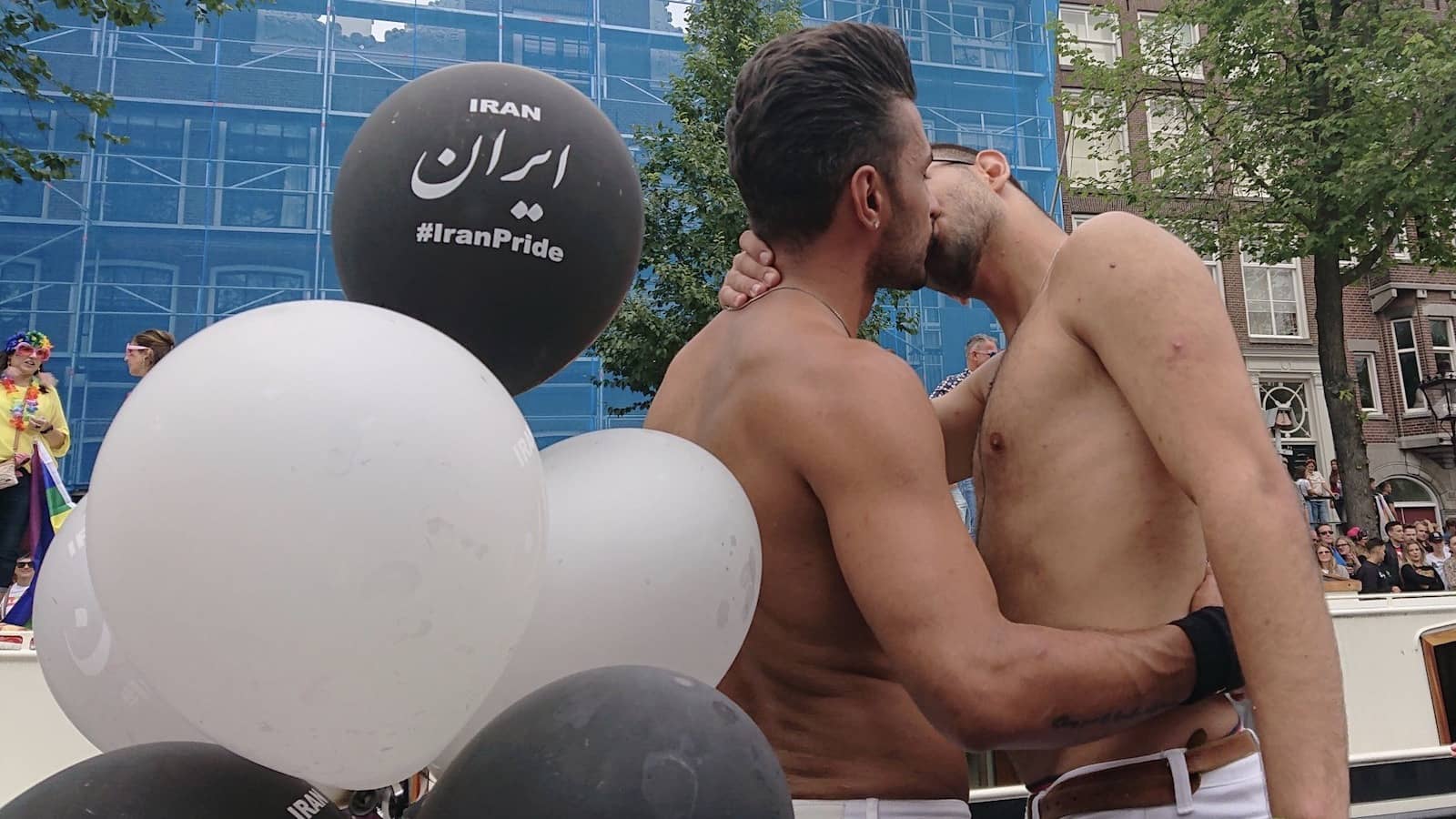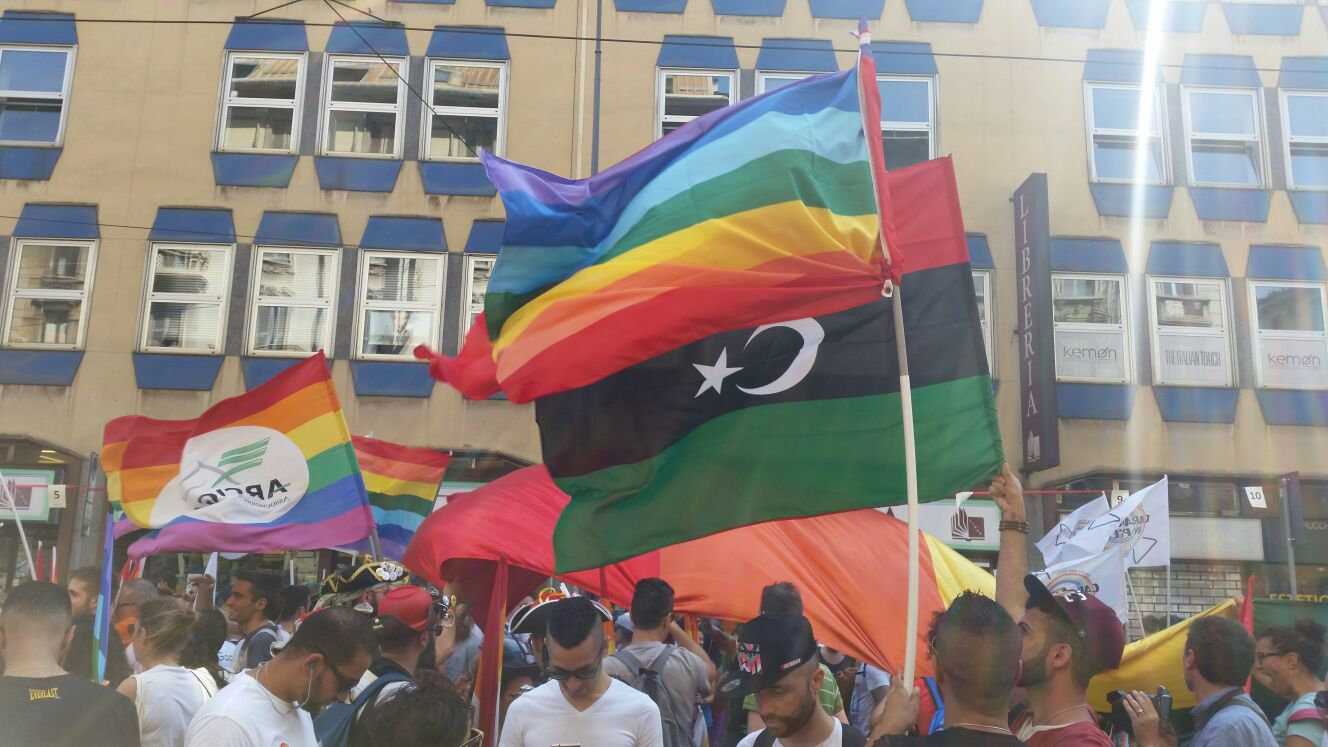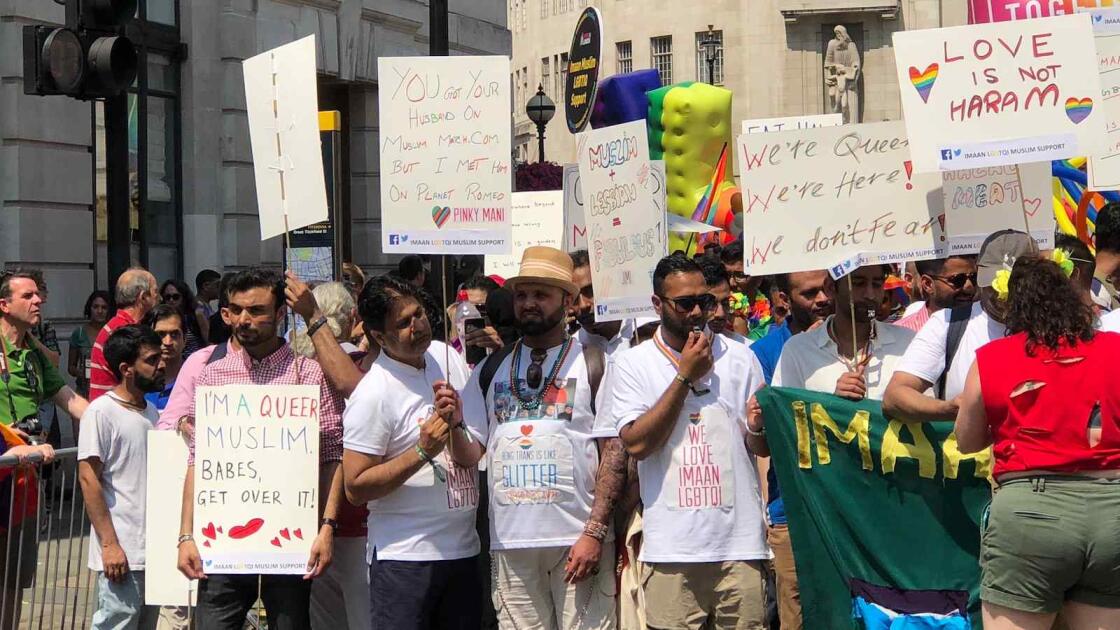In this article, we discuss what we think are the most dangerous places in the world for gay travelers
As gay guys with a constant travel bug, we like to experiment and see new places.
Everywhere we go, we strive to connect with local LGBTQ+ people and gain their perspective on what it's like growing up gay in their country. A mix of our experience and their stories helps us collate our guide to the most gay friendly countries in the world. However, we've also seen some shockers, particularly among countries that have an anti gay law.

Whilst we respect local custom, take care with PDAs and pretend we're just friends, this sucks. The fact that we need to resort to such measures simply to stay safe whilst exploring those parts of the world is a sad reality that LGBTQ+ travelers face in today’s world.
In this article, we've highlighted the worst offenders. We've focused on countries that not only have an anti-gay law, but also go further and actively enforce it. We urge you to also read our Gay Travel page for more resources and vital advice.
Help them get to safety…
There are countries in the world where LGBTQ people face violence and oppression simply because of who they love or who they are. You can help them get to safety by donating to the awesome Rainbow Railroad non-for-profit global organization. We truly respect what they do and we are proud to support them in any way we can.
1. Uganda
In late May 2023, the Ugandan President, Yoweri Museveni, enacted one of world’s harshest anti-LGBTQ+ laws, which now introduces the death penalty for gay people. Uganda already had an anti-gay law before, but people largely just ignored it and just let LGBTQ people live in peace. What this new law does is actively encourage people to report anyone they suspect of being gay to the police, who are then obliged to arrest them. For example, a landlord can have his tenants arrested if he suspects they are gay.
Our concern is where does this obligation end – would hotel staff, for example, be obliged to have a guest arrested if he or she is suspected of being gay?
This law also goes further and imposes the death penalty on anyone caught making out with under-18s gays or where someone is infected with a life-long illness like HIV.
Just when we thought we were going forward in 2023, we see countries like Uganda introducing such Medieval draconian laws like this. The reality is that it’s more a political distraction tool used by weak politicians to divert the public’s attention from the real, more pressing issues, like poverty, drought, water pollution, corruption…
This terrible law also makes Uganda the first and only Christian-majority country to punish LGBTQ people with the death penalty.
2. Iran
For most people, Iran is one of the first countries that come to mind when prompted to think of a dangerous place to be gay. All travelers are generally cautioned against visiting, and this is further stressed for gay tourists.
It’s not just illegal to be openly gay in Iran, it carries a death sentence. And unlike other countries on this list, the Iranian government takes pleasure in enforcing executions. In 2019, a man was publicly hanged after being found guilty of being gay. Simply put, if you’re planning on visiting Iran, be prepared to go back into the closet, close all your social media accounts (or set them to private), and definitely do not engage in any affectionate behavior with other guys publicly! Even straight couples get judged for doing so.
LGBTQ people in Iran are forced to live deeply closeted lives. We spoke to a gay local called Sepehr about what gay life in Iran is really like. He told us how he had to mask his attractions growing up. He revealed that he is open to his parents and close friends and that they accept him for who he is. He also recounted how his experiences with doctors in HIV centers have been nothing but positive; they even offer him non-judgemental advice around homosexuality.

3. Jubaland in Somalia
All travelers are advised against visiting Somalia as a rule of thumb due to the high crime rates, kidnapping, terrorism, civil unrest, and piracy! The situation is even worse for LGBTQ travelers.
Gay Somalians live in constant fear of being outed. They also risk being disowned or isolated from their families and communities if found out. Many LGBTQ people have either fled their country or committed suicide because their home life had become so unbearable!
The worst of it is that being out in Somalia not only runs the risk of a jail sentence but if you’re in an area controlled by the Al-Shabaab Jihadist terrorist organization or in Jubaland in southern Somalia, you can be executed for being gay! As such, there is no positive representation of LGBTQ people in Somalia or any support organization. There are however groups abroad that have taken action to help give assistance to local LGBTQ Somalians, such as this LGBTQ Somali Instagram account.
This is when you realize just how important Pride events are – they don’t just start/stop in June but continue throughout the year!
4. Chechnya in Russia
Russia has received a lot of flak for its anti-homosexual laws in recent years. Yet, the region of Chechnya is even worse! Although Russia legalized homosexuality in 1993, Chechnya was, at the time, independent from the Federation. In 1996, Sharia law was brought in, making same-sex intercourse punishable by public beating, and after several offenses, death!
In 2006, leader Ramzan Kadyrov, started targeting both women and LGBTQ people who defied gender norms, even going as far as to encourage “honor killings”. This is a monstrous act that permits men to murder family members if they act out in a way that goes against their perceived gender. They’re viewed as “justified” in their “honor killing” crime because “in the eyes of the law”, their victim has brought shame on their family.
Since 2017, the government has led a terrifying crackdown on the Chechnyan LGBTQ community, which includes arrests, imprisonment, torture, and the murder of queer people. It’s been coined the “anti-gay purge”. There have been protests around the world to show solidarity with the country’s LGBTQ community. For example, in 2017, 300 Israelis formed a triangle as an act of support for Chechnyan prisoners. And most famously, protesters in Chechnya lay down on the streets draped in rainbow flags, whilst women laid by their side and wept – showing how mothers are mourning the loss of their gay children.
However, despite the protests, this ridiculous, dreadful persecution of the LGBTQ community in Chechnya continues to this very day, and for this reason, we place it as #1 on our list of the most dangerous places in the world for gay travelers! Be sure to check out our guide to gay Russia though – you’ll be surprised to find quite a vibrant LGBTQ community in big cities like Moscow and St Petersburg!
5. Yemen
Yemen is not a nice place to be if you’re gay. Same-sex activity can land you in prison – and even though it’s not enforced, it can result in the death penalty. Even the mere existence of such a threat is heinous. We feel terrible for all the queer kids growing up in Yemen who must endure such a homophobic environment.
There are barely any examples of homosexuality being discussed in a public forum in Yemen’s history. The only example we could find was a magazine’s review of an Egyptian film, where the writer expressed support for gay rights. The magazine, titled ‘Al Thaqafiya’, was subsequently shut down. On the flip side, an English-language magazine got away with an article condemning the idea of same-sex marriage in 2004. So, it’s clear they are cool with discussing the existence of gay people, as long as it’s in an insulting or demeaning way!
Activist Ala Jarban, a revolutionary Yemeni leader, became a public figure after taking part in the 2011 protests calling for ousting of former President Ali Abdallah Saleh. He subsequently made headlines when he came out. In an interview with the BBC, he recalled that the level of hate and abuse he received didn’t faze him and that he planned to continue his fight against corrupt power. Perhaps such a highly recognized, the rebellious figure might spark a national discussion and begin the push for progressive change in Yemen…
6. Libya
Travel to Libya is actively discouraged, regardless of a traveler’s sexual identity, due to ongoing threats of violence, civil unrest, and terrorism. Libyan law prohibits all sexual activity outside of a heterosexual marriage. In the 1990s, the government began undertaking a harder line in enforcing Islamic law. This included the use of flogging and amputation of anyone who went against Islamic morals.
Public understanding of different orientations or sexual health is limited, to say the least. And it certainly didn’t help when former leader Gaddafi, said that HIV/AIDs was a Western issue and Libyans had nothing to worry about, further stigmatizing HIV/AIDs as a “gay illness”.
After the demise of Gaddafi, some hoped views toward LGBTQ rights would start to change. Sadly, the persecution of homosexuality is still rampant. Today, anyone who engages in same-sex activity faces up to 4 years in prison and/or a death sentence.
The not-for-profit organization, Kun Libya, is hoping to combat the mistreatment of queer Libyans. Their work involves raising awareness around sexual and gender identity, as well as sexual health. They also publish interviews with queer Libyans who share stories on how they must remain closeted from their friends, family, and colleagues

7. Afghanistan
Due to the presence of terrorist groups like the Taliban and Al-Qaeda, Afghanistan is a dangerous place for any traveler to visit, full stop. And for LGBTQ tourists, even more so.
The enforcement of Sharia Law has made LGBTQ rights in Afghanistan horrific, especially after the brutal snap takeover of the entire country by the Taliban in August 2021. For example, gay people can be put to death if they are caught engaging in same-sex activity. This means that the LGBTQ community has to remain totally closeted throughout their lives for fear of being killed.
Despite rigid anti-LGBTQ views, the disgusting practice of “bacha bazi” or “boy play” appears to go unchallenged. This is where wealthy and military men kidnap teenage boys to dress up like women, perform for them, and, in most cases, sexually abuse them.
There are small signs of activism. An out and proud Afghan man, Hamid Zaher, released a book on what it’s like growing up gay in Afghanistan. It was a big success despite being banned from being sold in his home country. In addition, college professor Nemat Sadat started a pro-LGBTQ movement whilst lecturing at the American University of Afghanistan. He later came out as gay himself, which broke boundaries in the country.
8. Brunei
LGBTQ organization, OutRight Action International, has highlighted how Brunei has the “most worrisome state of rights for LGBT people in Southeast Asia”. For years, homosexuality was punished by up to 10 years in prison. However, in 2019, the Sultan of Brunei imposed Sharia Law, which includes severe punishments for homosexuality: gay men can be whipped or put to death and gay women can face a hefty fine, and/or jail time.
This backward move sparked international outrage. Many famous celebs (like George Clooney, Elton John, and Ellen DeGeneres) wrote open letters calling for people to boycott all hotels owned by the Sultan of Brunei, such as the Dorchester Collection and 45 Park Lane in London. The Sultan responded by saying he would not enforce this death penalty, but the fact that it remains in law is absolutely vile!
The LGBTQ community in Brunei has to remain deeply closeted, or risk persecution from peers. There are LGBTQ groups that have in the past managed to achieve some success. For example, the former Brunei Project managed to set up and run Brunei's first “International Day Against Homophobia” in 2016 before they were closed down in 2019 after the Sultan’s anti-gay law was introduced. Read more about my experience exploring Brunei as a gay traveler.
9. Aceh in Indonesia
We’ve traveled around Indonesia before – and had a gay ole’ time. In our experience, Indonesia was safe, with parts of it, like Bali island, a popular LGBTQ destination. However, large parts of the country remain extremely conservative as is highlighted in our interview with Joko from Java about gay life in Indonesia, in particular, the Aceh region. This is one place that is lightyears behind the rest of the country in terms of human rights.
The Aceh region of Indonesia is the only Indonesian province that imposes Islamic law. Those found “guilty” of homosexuality can be punished by up to 100 public lashes. Appallingly, this is regularly enforced. In early 2021, two gay men were whipped 77 times each after neighbors reported them for having intercourse! And in 2018, a group of transwomen was arrested, stripped naked, and had their heads shaved in public.
Aceh government officials claim it is more important for there to be “social harmony” than for LGBTQ people to have any rights. Therefore, there are no legal protections for gay people against discrimination or hate crimes. As such, young LGBTQ people in the Aceh Province would never dare “come out” to their family or friends. Instead, they force themselves to lead a miserable closeted life or try to find a way to escape to another country to lead a freer life.
Makes you realize how lucky we are!
10. Nigeria
Gay travelers would be best to steer clear of this African nation. Even Dolapo Badmos, a spokesperson for the Lagos police force, took to Instagram in 2019 to encourage LGBTQ people to leave Nigeria saying they are not welcome there.
Believe it or not, homosexuality was once accepted in Nigeria. They even honored non-binary gender identities, with people from the Igbo and Yoruba tribes choosing their gender identity after they had grown up. However, since the 1800s, being gay has been viewed as an abomination – mainly due to British colonizers enforcing their colonial Christian beliefs which have still not been overturned. This has made living conditions today extremely hostile for local LGBTQ Nigerians who in some cases are “hunted down” via sting operations and face imprisonment, torture, or even death.
We’ll end this one on a happy note: a survey carried out in 2017 found that 39% of Nigerians feel LGBTQ people should have access to public services such as healthcare and housing. This was an increase from a 2015 survey which was 30%. Plus, an LGBTQ activist from Lagos, Bisi Alimi, reported about the underground gay scene in Nigeria, comparing it to how Britain would have been in the 60s.
11. Mauritania
Little is known about gay life in Mauritania. Legally, however, if at least four people witness someone “being homosexual”, they can be put to death. Thankfully, there are no records of this law being enforced. Regardless, it is best for openly gay travelers to avoid travel to Mauritania altogether due to the extreme conservative views, unless you’re happy to go fully back into the closet.
From what we could find, there are no active support groups or underground scenes for queer people in Mauritania. Homosexuality is never discussed in public forums, even in a negative way. So, we can imagine there are thousands of gay people growing up there who have no understanding of their attractions or sexual desires.
In fact, the only reference we could find was an incident in 2020, when Pink News wrote an article on a “supposed gay wedding” that was busted by the police. Turns out, it was just a joke between friends on a gay guy’s birthday. Nevertheless, 10 men from the party were arrested and imprisoned.
12. Sudan
Sudan has a chequered relationship with the LGBTQ community. Homosexuality was criminalized in 1899 following British colonization. However, back in the 1930s, evidence emerged of accepted same-sex activity in Sudan among several tribes, such as the Moru, Nyima, and Tira. There were even instances of gay marriage in the Korongo and Mesakin tribes. In each of these tribes, men often opted to live in all-male settlements rather than marry girls in their home villages.
We don’t know much about these tribes today, but it goes to show how gay desire is an innate natural human feeling and it is homophobic laws that are manmade and unnatural!
Today, being gay in Sudan is very much illegal, and those caught engaging in same-sex activity face imprisonment. Yet, on the bright side, in 2020, Sudanese lawmakers removed the death penalty and corporal punishment (such as flogging) for homosexuality. Plus, the attitudes of the Sudanese people aren’t as bad as one might think. For example, in a study carried out in 2019, 17% of people felt that homosexuality should be accepted – that’s almost 1 in 5! Sure, that seems low by Western standards for a country riddled with anti-gay laws, but it’s certainly a move in the right direction.
13. Pakistan
Same-sex relations in Pakistan are outlawed, with those caught engaging in such activity facing up to 10 years in jail. Queer people who can’t flee the country are forced to lead a very closeted and repressed life, at best relying on gay dating apps (via a VPN, of course), to find each other.
In our interview about gay life in Pakistan with local boy Salman from Karachi, he told us that his only chance of a free and happy life was to flee to the US. This has cut him off from many friends and family back home, and worst of all, he doubts he will ever be allowed to return home to visit his family due to the hostile nature toward gay people there.
Similar to India, Pakistan has a community of people known as “hijras” (those who are intersex and/or transgender). Traditionally, they are seen as a token of good fortune and are a desired presence at births and weddings. Sadly, this hasn’t stopped hijras from enduring extreme harassment and sexual abuse.
But perhaps, things are looking up? In a 2017 poll conducted by ILGA, 45% of Pakistanis say LGBTQ people should have the same rights as straight people and 31% of citizens said gay people shouldn’t be treated like criminals…
14. Qatar
If you’re found guilty of homosexuality in Qatar, you can face a fine, up to 3 years in prison, and/or a death sentence. And while there is no record of the death penalty being enforced, there is an omnipresent threat of it being used one day.
Conditions for gay people in the country are so extreme that when FIFA announced it would host the 2022 World Cup, activists around the world called for a boycott.
Any positives?
In early 2021, Qatar granted permission for people to fly Pride flags in stadiums during the 2022 World Cup. In addition, Al Jazeera, a world-renowned news outlet based in Qatar, often writes about LGBTQ rights in a positive light even gushing about the Queer Eye guys via a tweet. They truly have no fear of going against their country’s archaic laws!
Whilst Qatar went on to host what was overall lauded as a successful World Cup it created important conversations about the state of LGBTQ rights in Qatar, which at the very least gives visibility to a subject that is often swept under the carpet and ignored.
For a more in-depth look, check out our article about whether it's ethical for LGBTQ travelers to visit Qatar.
Read more travel adventures like this in our book!
We've published our very own gay travel book called, ‘Out in the World'. It has all our practical safety tips, first-hand advice, and travel stories from some of our favorite destinations.
We hope it inspires you to have a fun and safe trip!
Click on the book to order:

For more inspiration:
- Contrast this list with the most gay friendly countries in the Arab World
- Use our safety tips for using gay dating apps while traveling
- Here are our favorite gay apps to use while traveling
- Use our gay guides to Dubai and Abu Dhabi to plan your trip in the UAE
- Listen to some of our favorite gay singers
- And make sure you watch these best gay actors on the small or big screen


James J. Klekowski
Friday 25th of April 2025
Thank you for posting this information and for the fantastic work you do for all of us! My travels these days are limited to the Midwest US, and an occasional visit to Puerto Rico. Happy travels!
Stefan Arestis
Sunday 27th of April 2025
Some beautiful places to explore there :)
Sid
Saturday 15th of July 2023
All the ‘shithole’ countries have one thing in common. They are all gay-unfriendly 😀
Stefan Arestis
Sunday 16th of July 2023
We hope this changes one day.